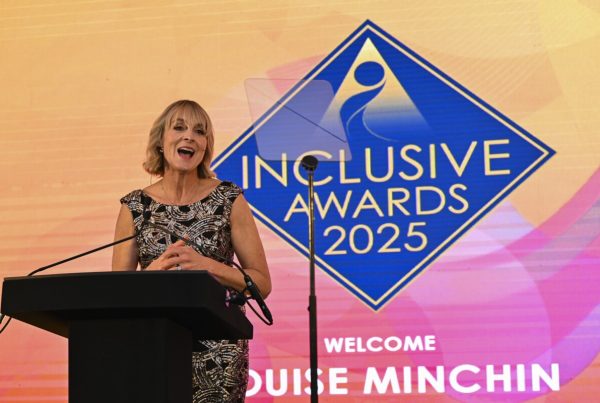The world’s largest live employee engagement data platform, WorkL, reveals that half of employers believe that Generation Z is not entering the workplace well-equipped with the skills and knowledge needed for their roles.
The annual WorkL Global Workforce Report 2024, which is published today (17th January 2024) found that mentoring initiatives are being implemented by employers to support Gen Z, with four in ten employers taking the step. Having been significantly impacted by the global pandemic and the shift in traditional working practices, WorkL has seen a falling engagement score for the youngest demographic over the last 12 months; decreasing from 71% in 2021 down to just 67% in 2023, a concerning four percentage point decrease and the lowest score out of all age groups. A generation who most likely entered the workforce and were then either furloughed or fired, are now also facing economic challenges including a tough property rental market.
WorkL’s 2024 report provides a global outlook on the state of people’s working lives throughout 2023. Data from over 300,000 employees across the US, Australia, New Zealand, Ireland and the UK has been used to provide insight into how happy people are at work and, importantly, what employers can do to support their workforce.
Pay has been a stand-out theme in the report, with seven in ten employers believing that there is a significant gap between what employees expect to get paid and what they can offer as an employer. WorkL’s data mirrors what has been seen in workforces around the world. Focusing on UK responses over the past few years to the statement, ‘I am fairly paid’, WorkL’s report reveals a drop of three percentage points from 2021, and in 2023 there is another fall of two percentage points in the UK (67%). Qualitative data from WorkL reinforces this with the top wish from employees to improve their working life stated as ‘better pay’.
Employees in the UK are feeling the burden of the recruitment gap, which began in 2022. Coming a close second in WorkL’s qualitative results, employees identified ‘more staff’ as something that would help improve their working lives. This illustrates the acute challenge many employers are facing when it comes to talent recruitment and retention, creating a workforce with not just the right employees but simply enough employees. The hospitality industry in particular this year continues to experience a ‘recruitment gap’.
Lord Mark Price, the Founder of WorkL comments; “This snapshot of the state of the world’s workforce is intended to inform and inspire organisations to understand how they can better motivate their employees. Headlines from our annual global report underline the need for employers to support minority employees better. The ongoing struggle people with disabilities face in the workplace is all too apparent in our data. This report paints a picture of a workforce with a ‘disability workplace divide’ – people with disabilities suffer a high flight risk – they’re more likely to want to leave their jobs than people without disabilities. Similarly, we are also seeing risk to their Wellbeing and they have the lowest score when it comes to their confidence in management.”
Baroness Tanni Grey-Thompson, one of Britain’s greatest Paralympic athletes, provides commentary within the report on this topic and gave a keynote speech at the launch of the report on a virtual live roundtable hosted by Lord Mark Price, which also included a keynote speech by the British business journalist, Kamal Ahmed.
Baroness Tanni Grey- Thompson comments on disabilities in the workplace; “One of the things I feel very strongly about, and it’s probably rich coming from me as a Paralympian and an ex-athlete, is when people tell me 2012 changed the world. The Olympics in 2012 were stunning but they did not change the world for Disabled people in any way shape or form. The South Bank in London is a bit more accessible and we now have lifts at Kings Cross and Green Park, and a few other things but the reality is only a third of London’s tube stations are accessible. Whilst it’s important that we talk about employment, we have to think about not just Disabled people, but the social model of disability and impairment and actually ask ourselves what are companies doing not just to open their doors but to really shift the dial.”
Kamal Ahmed comments on Gen Z in the workplace; “Gen Z is the Covid Generation, whose education, relationships, work life and mental health were upended by the pandemic. This is the generation; that is likely to be worse off than their parents over their lifetime – an historic anomaly that has less than one month’s income in savings. That is experiencing the largest falls in real wages as rising prices bite. That has made the fewest “passive gains” from home ownership – and is seeing that dream drifting ever further away as house price increases outstrip growth in real incomes. The worries of Generation Z are very different from the worries of Generation X, and the power dynamic is moving from the latter to the former.”
The global report also highlights the latest employee engagement findings in the UK, Ireland, Australia, New Zealand and the USA.
The UK lags behind other countries in overall engagement in 2023, with a score of 70%, one percentage point lower than the Global average (71%). The issue of pay is one that has come up yet again for the UK’s workforce, due to rising inflation. Qualitative data in this report also backs up this issue. ‘Better pay’ is a phrase used the most by UK employees to describe what could improve their workplace happiness. Disabled employees in the UK have not fared well in terms of Flight Risk and Wellbeing Risk. Data shows a very high flight risk in the UK for people with disabilities with a Flight Risk of 37% – significantly higher than the score for people with no disabilities (28%) and higher than the Global Flight Risk score of 32% for people with Disabilities.
In Ireland, the LGBTQ+ community has a significantly higher Flight Risk, 38%, compared to the LGBTQ+ global average of 32%. Employees with disabilities in Ireland have a concerning Flight Risk of 34% which is two percentage points higher than the global average Flight Risk for disabled employees.
The USA is the most engaged country with an impressive Engagement Score of 75%. The country is performing notably better than the global average (71%) which could be a result of its strong economic performance in 2023. The U.S. economy outperformed expectations along three key dimensions: growing economic output, labour market resilience, and slowing inflation.
Working in Australia comes with a relatively lower Wellbeing Risk when compared to other countries such as the UK. The country’s overall Wellbeing Risk is 31% which is two percentage points lower than the UK (33%) and the same as the Global Average (31%). The Flight Risk score for disabled employees in Australia is 34%, two percentage points higher than the global average of 32%, suggesting a higher likelihood of disabled employees leaving their jobs.
It’s good news for workplaces in New Zealand with employees who have a positive Job Satisfaction score of 73%, slightly higher than the global average score of 72%. Employees in New Zealand also appear to be empowered with an Empowerment score of 74%, one percentage point higher than the Global average of 73%. Being an older worker in New Zealand means you’re more than likely to be happy in your job with employees aged 65+ having an Engagement Score of 77%, marginally higher than the Global average for this age range (76%). New Zealand also has a very low Flight Risk score of 17% for the 65+ age group which is three percentage points lower than the Global average of 20% for this age group indicating strong job retention in this age group.




